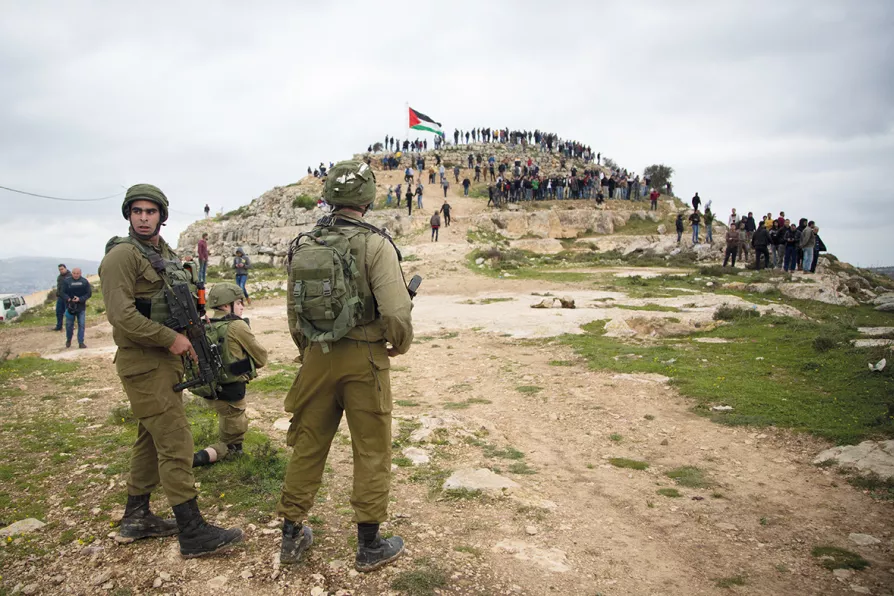RICHARD BURGON MP speaks to Ben Chacko about the Labour right’s complicity in the Mandelson scandal and the need for a total break with Starmerism if the party is to defeat Reform

 Palestinian demonstrators gather
during a protest against expansion of Israeli
settlements in the West Bank village of Beita as
Israeli soldiers take position, March 2020
Palestinian demonstrators gather
during a protest against expansion of Israeli
settlements in the West Bank village of Beita as
Israeli soldiers take position, March 2020
GHASSAN MANSOUR and his wife Zohaira (not their real names) were delighted when they received their permit from the Israeli Civil Administration allowing them their yearly four-day access to their grove to harvest olives.
If this year’s figures bore any resemblance to those for 2020, their application was one of the lucky 27 per cent granted in the occupied West Bank.
The permit did not apply to all their land. Some years ago, acres of land on which the Palestinian couple and their family used to cultivate wheat and sesame had been expropriated by the nearby illegal Jewish settlement of Har Brakha to form a barren cordon around the settlement.

For those who lived in Yanoun, its disappearance is not just a local tragedy, but a stark symbol of escalating violence, displacement and impunity across the occupied West Bank, says JANE HARRIES

Olive oil remains a vital foundation of food, agriculture and society, storing power in the bonds of solidarity. Though Palestinians are under attack, they continue to press forward write ROX MIDDLETON, LIAM SHAW and MIRIAM GAUNTLETT

David Lammy is now calling Israel’s escalation of the Gaza genocide morally unjustifiable — but what is truly unjustifiable is for Lammy to say this while directly arming and providing surveillance information for the genocide, writes NUVPREET KALRA











